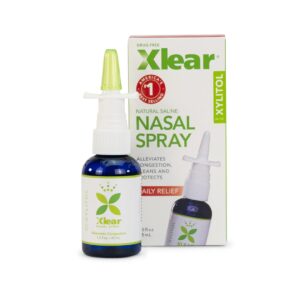In today’s medical landscape, the combination of medications to treat co-occurring mental health conditions is not uncommon. Some individuals may be prescribed Wellbutrin and Adderall together to manage issues such as depression and attention-deficit/hyperactivity disorder (ADHD).
Understanding how these two medications interact, their effectiveness, and the potential side effects is essential for anyone considering or currently using this combination.
What Is Wellbutrin?
Wellbutrin, also known by its generic name bupropion, is primarily used to treat major depressive disorder and seasonal affective disorder. It’s classified as an atypical antidepressant that works differently than selective serotonin reuptake inhibitors (SSRIs). Instead of acting on serotonin, it influences norepinephrine and dopamine — chemicals involved in mood regulation.
Additionally, Wellbutrin is sometimes prescribed off-label to help individuals stop smoking or to manage symptoms of ADHD.
What Is Adderall?
Adderall is a stimulant composed of amphetamine salts. It’s most commonly used to treat ADHD and narcolepsy. Adderall increases the availability of dopamine and norepinephrine in the brain, helping improve concentration, focus, and overall cognitive performance.
Due to its stimulant nature, Adderall is classified as a Schedule II controlled substance in many countries, including the U.S., due to its potential for abuse and dependency.
Why Use Wellbutrin and Adderall Together?
Some individuals experience overlapping symptoms of depression and ADHD. Since both medications target dopamine and norepinephrine (albeit in different ways), using them together might enhance effectiveness for some patients.
Wellbutrin and Adderall together are often considered when:
- A patient does not respond well to antidepressants alone.
- The person has coexisting depression and ADHD.
- Doctors want to reduce the dosage of stimulant medications by combining them with non-stimulants like Wellbutrin.
This combination should always be monitored by a medical professional due to the risk of drug interactions or intensified side effects.
Possible Benefits of the Combination
For the right candidate, this dual-medication strategy may lead to better symptom control and a more balanced mental state.
Potential advantages include:
- Improved mood and emotional regulation.
- Enhanced focus and cognitive clarity.
- Reduced impulsivity and hyperactivity in ADHD.
- Support in quitting smoking due to bupropion’s properties.
Side Effects to Watch For
While some patients benefit from combining these drugs, it’s not without potential risks. The combination may amplify side effects or lead to new ones, especially related to the cardiovascular or nervous systems.
Here are some key side effects individuals might experience:
- Increased anxiety or restlessness
- Insomnia or disrupted sleep cycles
- Elevated blood pressure and heart rate
- Dizziness or headaches
Only a licensed healthcare provider can evaluate whether the benefits outweigh the risks based on your unique medical profile.
Considerations Before Taking Both Medications
Before starting Wellbutrin and Adderall together, there are several factors to consider:
- Medical History: Pre-existing conditions like heart problems, seizures, or bipolar disorder need to be addressed before combining these medications.
- Other Medications: Interactions with other drugs, including SSRIs, antipsychotics, and even over-the-counter supplements, can cause complications.
- Mental Health Diagnosis: Accurate diagnosis of ADHD and depression is critical to determine if both medications are needed.
Key Points to Keep in Mind
- Both medications affect dopamine and norepinephrine in different ways.
- They can work synergistically when prescribed carefully.
- Medical supervision is essential for safe use.
- Dosage adjustments are often required over time.
Four Essential Things to Know
Here are four important takeaways if you’re considering or currently using Wellbutrin and Adderall together:
- Doctor Supervision Is Critical – These medications must be prescribed and monitored by a qualified healthcare professional.
- Not Everyone Benefits Equally – The combination works well for some, but others may experience heightened side effects or no improvement at all.
- Lifestyle Factors Matter – Caffeine, alcohol, and other stimulants can interact poorly with this combination.
- Adherence and Monitoring – Missing doses or adjusting them without medical advice can lead to complications.
Common Questions Answered
Q1 :Can these medications be taken at the same time of day? Typically, Wellbutrin is taken in the morning, and Adderall can be timed to support focus during key periods of the day. However, your doctor will decide the best dosing schedule for your needs. Q2 :Does Wellbutrin reduce Adderall’s effectiveness? In some cases, Wellbutrin may actually enhance Adderall’s impact by supporting dopamine availability. In others, side effects may overshadow the benefits. Monitoring is necessary. Q3 :Is it safe to mix a stimulant and an antidepressant? While this combination might sound risky, it’s relatively common when carefully managed. Doctors weigh the therapeutic benefits against potential cardiovascular and neurological concerns. Q4Can this combination lead to dependency? Adderall has a known potential for misuse or dependence. Wellbutrin, on the other hand, is not addictive. The combination should only be taken under close medical supervision to reduce any risks of dependency.
Final Thoughts: Wrapping Up the Insights
Pairing Wellbutrin and Adderall together can be a useful strategy in the treatment of overlapping mental health conditions, especially when guided by a trusted physician. While the synergy between the two medications has the potential to improve daily functioning, emotional balance, and cognitive performance, the importance of tailored medical advice cannot be overstated.
Always consult your healthcare provider before making changes to your medication plan, and keep an open line of communication about any side effects, benefits, or concerns that arise along the way.









